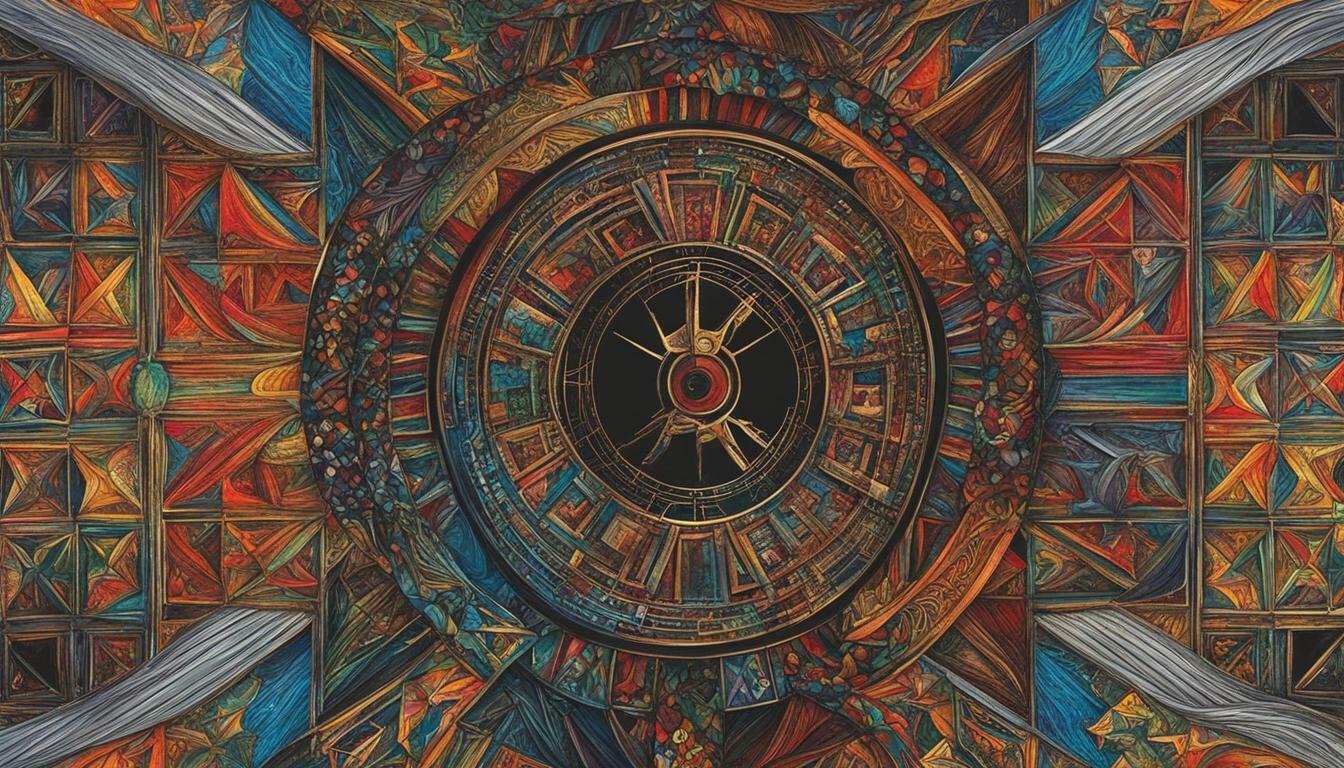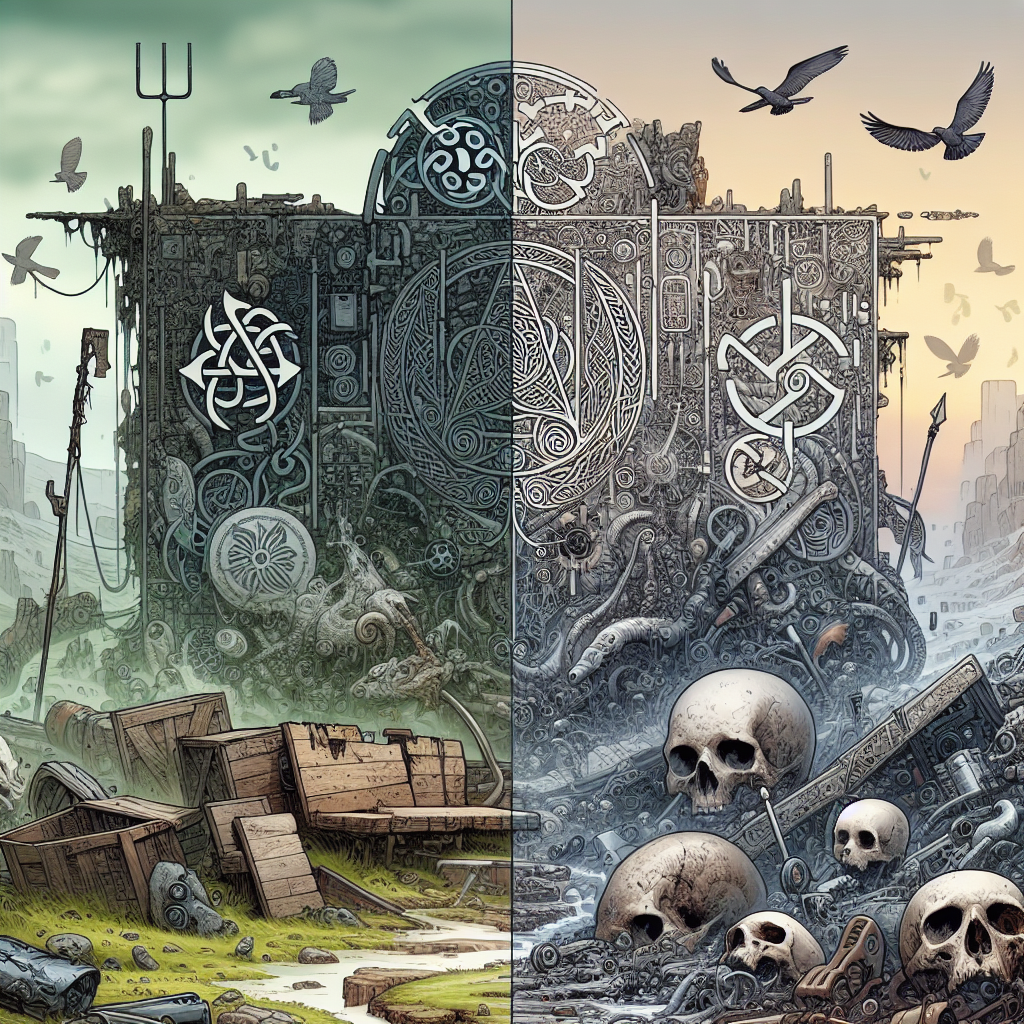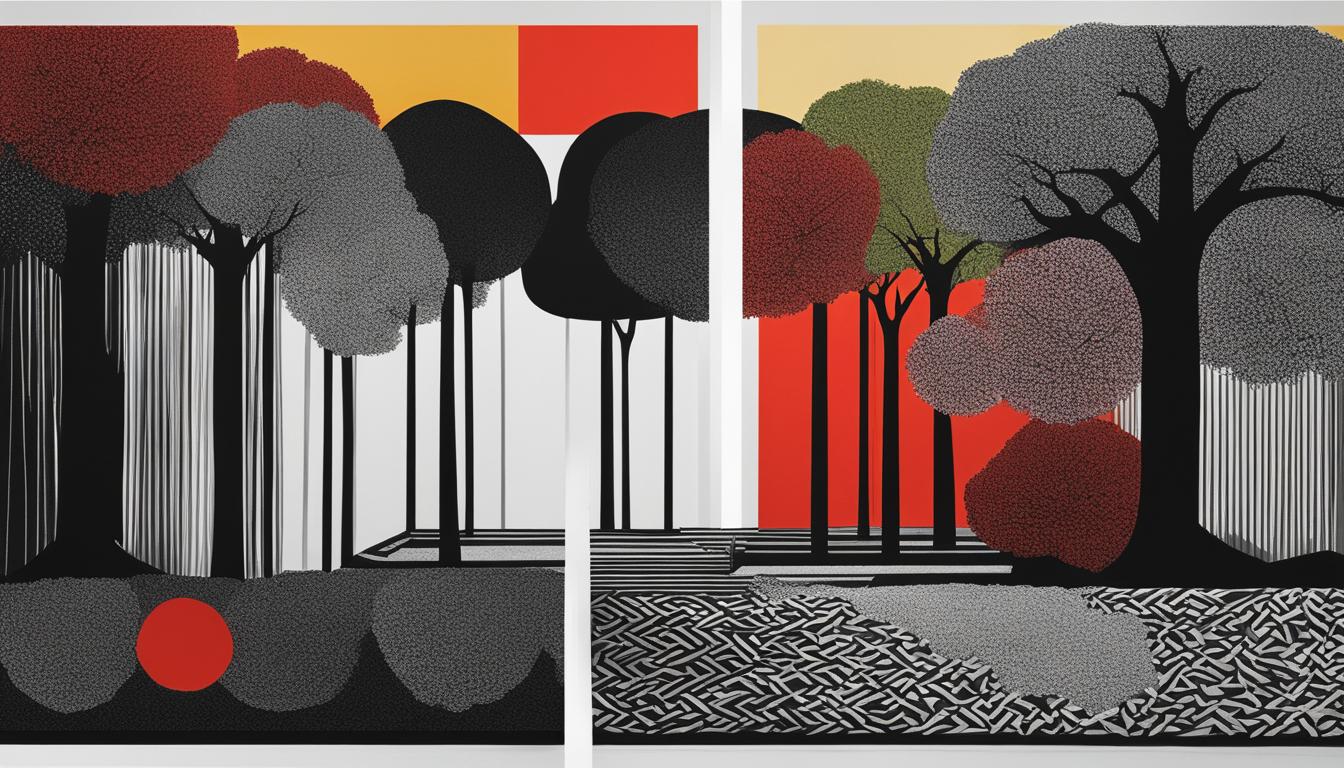Afro-Caribbean religions and Christianity have distinct beliefs and practices when it comes to the afterlife. Afro-Caribbean religions, including vodou, Santería, and Shango, have a syncretic nature that combines African and European traditions. They believe in a complex system of deities and spirits, with rituals and offerings made to appease and communicate with them. Afro-Caribbean religions also place great importance on ancestor worship and see the afterlife as a continuation of life, with the spirits of the deceased playing a significant role in the lives of the living. Neglecting or angering the ancestors can lead to misfortunes.
On the other hand, Christianity, widely practiced in the Afro-Caribbean region, holds a different perspective on the afterlife. Christians believe in a single God and focus on the teachings of Jesus Christ. They believe in the concept of heaven and hell, with the afterlife’s outcome being dependent on one’s faith and actions during their earthly life. Christianity places emphasis on salvation and the forgiveness of sins through Jesus Christ.
Key Takeaways:
- Afro-Caribbean religions, like vodou, Santería, and Shango, have syncretic beliefs and incorporate African and European traditions.
- These religions believe in a complex system of deities and spirits, with rituals and offerings made to communicate and appease them.
- Ancestor worship is an essential aspect of Afro-Caribbean religions and plays a significant role in the afterlife beliefs.
- Christianity, widely practiced in the Afro-Caribbean region, focuses on the teachings of Jesus Christ and the concept of salvation.
- Christians believe in a single God and the idea of heaven and hell, with the afterlife being determined by one’s faith and actions.
Afro-Caribbean Religions and Their Afterlife Beliefs
Afro-Caribbean religions, such as vodou, Santería, and Shango, have distinct afterlife beliefs rooted in their syncretic traditions and practices. These religions are a fusion of African and European spiritual traditions, resulting in unique and complex belief systems.
In these Afro-Caribbean religions, the concept of the afterlife is intertwined with the worship of deities and spirits. Practitioners believe in a multitude of divine beings who play a role in their lives, both in the present and after death. Rituals and offerings are performed to communicate with and appease these deities and spirits, maintaining a harmonious relationship with the spiritual realm.
Ancestor worship is another significant aspect of Afro-Caribbean afterlife beliefs. Ancestors are seen as powerful beings who continue to influence the lives of their descendants. They serve as intermediaries between the living and the divine, and offerings and prayers are made to honor and seek their guidance. Neglecting or angering the ancestors is believed to result in misfortune or negative consequences.
Distinctive Practices and Rituals
Distinctive practices and rituals are integral to Afro-Caribbean religions’ afterlife beliefs. These include ceremonies, dances, drumming, and storytelling, which serve to connect individuals with the spiritual forces and ensure a harmonious coexistence. Symbolism, sacred objects, and sacred spaces are also important in these practices, creating an atmosphere of reverence and connection with the divine.
For example, vodou ceremonies may involve dancing, singing, and trance-like states to connect with specific deities and spirits. Santería rituals often incorporate animal sacrifice as a means of offering to deities, while Shango ceremonies feature drumming and dancing to honor the Yoruba god of thunder and lightning. These practices reinforce the belief in an active spiritual realm and the importance of maintaining a balanced relationship with the divine.
Table: Comparing Afro-Caribbean Religions and Christianity on Afterlife Beliefs
| Afro-Caribbean Religions | Christianity |
|---|---|
| Multiple deities and spirits | Belief in a single God |
| Emphasis on ancestor worship | Focus on teachings of Jesus Christ |
| Afterlife seen as continuation of life | Heaven and hell concept |
| Rituals and offerings to maintain relationship with spirits | Emphasis on faith and salvation through Jesus Christ |
The table above summarizes the key differences between Afro-Caribbean religions and Christianity regarding afterlife beliefs. These divergent perspectives contribute to the rich cultural and spiritual tapestry of the Afro-Caribbean region, showcasing the diversity and complexity of religious practices in this part of the world.
Christian Views on the Afterlife
Christianity, widely practiced in the Afro-Caribbean region, has specific views and interpretations of the afterlife. Christians believe in a single God and focus on the teachings of Jesus Christ. They believe in the concept of heaven and hell, with the afterlife being dependent on one’s faith and actions during their earthly life. The Christian belief system places emphasis on salvation and the forgiveness of sins through Jesus Christ.
In Christian theology, heaven is seen as a place of eternal bliss and communion with God. It is described as a realm of perfect peace and happiness, where believers will be reunited with loved ones who have passed away. On the other hand, hell is portrayed as a place of eternal separation from God, characterized by suffering and punishment for those who have rejected God’s love and salvation.
Christianity also teaches that faith in Jesus Christ and living according to His teachings are essential for attaining eternal life in heaven. Christians believe that Jesus’ death and resurrection provide salvation and offer the opportunity to be forgiven for sins. This belief is based on the understanding that Jesus, as the Son of God, sacrificed Himself to redeem humanity from sin and open the pathway to eternal life.
| Belief System | Key Points |
|---|---|
| Afro-Caribbean Religions |
|
| Christianity |
|
Contrasting Belief Systems
Afro-Caribbean religions and Christianity diverge in their belief systems and practices concerning the afterlife. Afro-Caribbean religions, such as vodou, Santería, and Shango, incorporate a syncretic blend of African and European traditions. In these religions, the afterlife is seen as a continuation of life, where the spirits of the deceased continue to play a significant role in the lives of the living. This belief is rooted in the understanding that individuals possess multiple souls, and that neglecting or angering the ancestors can lead to misfortunes.
Christianity, which is widely practiced in the Afro-Caribbean region, takes a different approach to the afterlife. Christians believe in the existence of a single God and focus on the teachings of Jesus Christ. In Christianity, the afterlife is seen as a reward or punishment based on one’s faith and actions during their earthly life. The concept of heaven and hell is central to Christian beliefs about the afterlife, with the ultimate goal being salvation and the forgiveness of sins through Jesus Christ.
The contrast between Afro-Caribbean religions and Christianity is evident in their spiritual systems. Afro-Caribbean religions feature a complex array of deities and spirits, while Christianity emphasizes monotheism, or the belief in a single God. Additionally, Afro-Caribbean religions place great importance on ancestor worship, rituals, and offerings to communicate with spirits, whereas Christianity focuses on prayer, faith, and adherence to moral teachings.
Table: Comparing Afro-Caribbean Religions and Christianity on Afterlife Beliefs
| Afro-Caribbean Religions | Christianity |
|---|---|
| Syncretic blend of African and European traditions | Focus on the teachings of Jesus Christ |
| Belief in multiple souls and the continuation of life in the afterlife | Belief in heaven and hell |
| Importance of ancestor worship and communication with spirits | Emphasis on prayer, faith, and moral teachings |
The Role of Spirits and Ancestors in Afro-Caribbean Religions
Afro-Caribbean religions place a significant emphasis on spirits and ancestors in their understanding of the afterlife. These religions, which include vodou, Santería, and Shango, have a rich spiritual tradition that incorporates elements from both African and European traditions. In their belief system, spirits and ancestors play a vital role in the lives of individuals and communities.
Rituals and offerings are made to appease and communicate with the spirits, seeking their guidance and protection. These rituals often involve music, dance, and trance-like states to connect with the spiritual realm. Ancestral worship is also a central practice in Afro-Caribbean religions, as ancestors are believed to have a continued presence and influence in the lives of their descendants.
It is through the honoring and recognition of ancestors that individuals can maintain a harmonious relationship with the spirit world. Neglect or angering of the ancestors can lead to misfortunes and disturbances in the lives of believers. By seeking their ancestors’ guidance and assistance, followers of Afro-Caribbean religions believe they can navigate the challenges of life and maintain a spiritual connection to the afterlife.
| Beliefs | Practices |
|---|---|
| Existence of deities and spirits | Rituals and offerings to communicate with and appease them |
| Multiple souls in individuals | Emphasis on ancestor worship |
| Afterlife as a continuation of life | Honoring and seeking guidance from ancestors |
On the other hand, Christianity, which is widely practiced in the Afro-Caribbean region, has a different perspective on the afterlife. While spirits and ancestors are not emphasized in Christian beliefs, the concept of heaven and hell, salvation, and the forgiveness of sins through Jesus Christ are central to Christian teachings.
Overall, the role of spirits and ancestors in Afro-Caribbean religions provides followers with a profound sense of connection to the afterlife. These beliefs and practices not only shape their understanding of the spiritual realm but also guide their actions and interactions with the world around them.
Conclusion
The difference between Afro-Caribbean religions and Christianity on the afterlife lies in their distinct beliefs, practices, and interpretations. Afro-Caribbean religions, such as vodou, Santería, and Shango, have a syncretic nature, combining African and European traditions. They believe in a complex system of deities and spirits, with rituals and offerings made to appease and communicate with them. They also believe in the existence of multiple souls in individuals and emphasize the importance of ancestor worship. In Afro-Caribbean religions, the afterlife is seen as a continuation of life, with the spirits of the deceased playing a significant role in the lives of the living. Neglect or angering of the ancestors can lead to misfortunes.
On the other hand, Christianity, which is widely practiced in the Afro-Caribbean region, has a different view of the afterlife. Christians believe in a single God and focus on the teachings of Jesus Christ. They believe in the concept of a heaven and hell, with the afterlife being dependent on one’s faith and actions during their earthly life. Christianity places emphasis on salvation and the forgiveness of sins through Jesus Christ.
Overall, the difference lies in the belief systems and practices of these religions. Afro-Caribbean religions have a more complex spiritual system, involving multiple deities and spirits, while Christianity focuses on monotheism with an emphasis on the teachings of Jesus Christ and the concept of salvation and the afterlife.
FAQ
What are Afro-Caribbean religions?
Afro-Caribbean religions, such as vodou, Santería, and Shango, are a syncretic combination of African and European traditions.
How do Afro-Caribbean religions view the afterlife?
Afro-Caribbean religions see the afterlife as a continuation of life, with the spirits of the deceased playing a significant role in the lives of the living.
What is the belief system of Christianity?
Christianity is a monotheistic religion that focuses on the teachings of Jesus Christ and the belief in heaven and hell.
How does Christianity interpret the afterlife?
Christians believe that the afterlife is dependent on one’s faith and actions during their earthly life and emphasize salvation through Jesus Christ.
What is the difference between Afro-Caribbean religions and Christianity in regards to the afterlife?
Afro-Caribbean religions have a more complex spiritual system with multiple deities and spirits, while Christianity is focused on monotheism and the teachings of Jesus Christ.
How do Afro-Caribbean religions and Christianity view the role of spirits and ancestors?
Afro-Caribbean religions emphasize the importance of rituals, offerings, and ancestor worship to maintain a harmonious relationship with the spirit world, while Christianity does not place the same emphasis on these practices.



